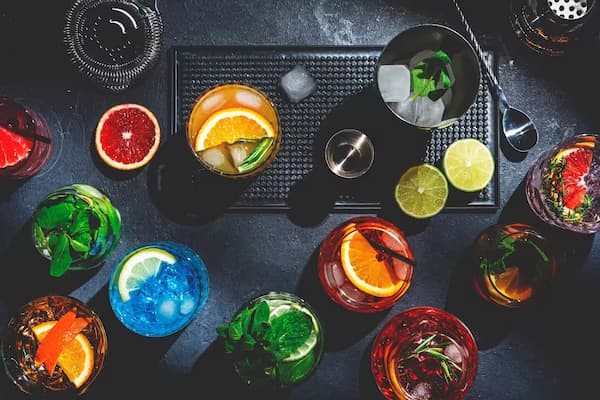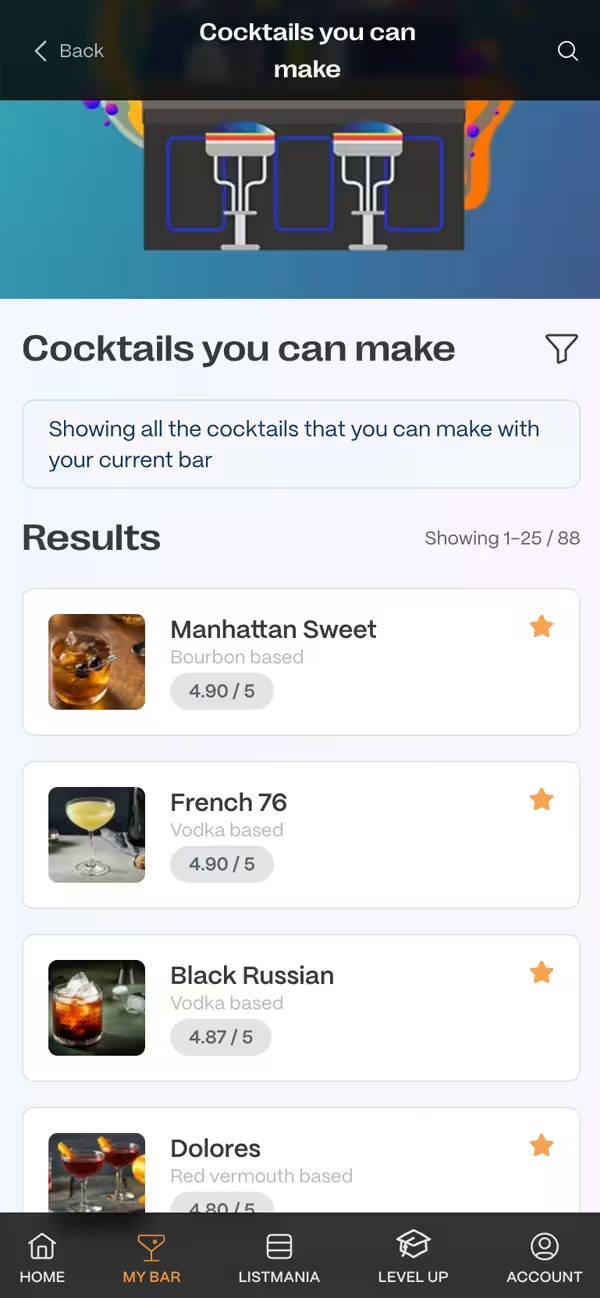Sugar
With Sugar you can make
Santa's secret winter warmer
Santa's Stiff Hot Chocolate
Dark rum, Honey, Milk, Vanilla Essence, Sugar, Cinnamon, Hot chocolate
Christmas in a Glass
Mince pie martini
Gin, Dark rum, Red vermouth, Sugar, Mincemeat
Tea time with a bourbon twist.
Tipsy Arnold Palmer
Bourbon, Lemon Juice, Sugar, Tea, Orange, Lemon
Sweet blackberries meet malt whisky.
Blackberry Bramble
Whiskey, Lime, Sugar, Blackberries
Nostalgic Southern Elegance
Sazerac
Absinthe, Cognac, Peychaud's Aromatic Bitters, Sugar
Decadence in a glass
The Little Black Dress Toddy
Coconut rum, Vanilla liqueur, Salt, Milk, Sugar, Hot chocolate, Cardamom pods
Sangria’s festive cousin.
Rudolph's Red Nose
Triple Sec, Red Wine, Orange juice, Cranberry Juice, Sugar / simple Syrup, Orange, Sugar, Cinnamon, Almond extract
Wisconsin's Sweet Secret
Brandy Old Fashioned
Brandy, Angostura Bitters, Sugar
Sweet strawberries meet Brazilian spirit.
Strawberry Caipirinha
Cachaça, Strawberry, Lime, Sugar
We've got 9 cocktails that can be made with Sugar.
Find out what to make with Sugar
Q&A
What is the history of sugar in cocktails?
The history of sugar in cocktails dates back to the early days of mixology in the 18th and 19th centuries. Initially, sugar, along with bitters, water, and spirits, was one of the key components in the creation of the first cocktails. It was used to balance the flavors and make the harshness of early spirits more palatable. As cocktails evolved, so did the use of sugar, from simple sweeteners to an integral part of the drink's structure and flavor profile. The invention of simple syrup made it easier for bartenders to incorporate sweetness uniformly, leading to the development of more complex and nuanced cocktails. Sugar's role in cocktails has a storied past, reflecting the broader history of culinary and drinking cultures around the world.
What are the different types of sugar used in cocktails?
In cocktails, different types of sugar are used to achieve various flavors, textures, and aesthetic effects. The most common types include granulated white sugar, which is used for its neutral sweetness; simple syrup, a versatile liquid sweetener made by dissolving sugar in water; demerara and turbinado sugars, which are less processed and have a caramel-like flavor; and sugar cubes, which are popular in classic cocktails for muddling. Additionally, flavored syrups and specialty sugars, like coconut or palm sugar, are used to introduce unique notes and complement specific ingredients.
How do you make simple syrup for cocktails?
Making simple syrup for cocktails is an easy but fundamental skill in mixology. To create a standard 1:1 simple syrup, combine equal parts granulated sugar and water in a pot. Heat the mixture over medium heat, stirring occasionally, until the sugar has completely dissolved. For a richer, 2:1 syrup, use two parts sugar to one part water. Once the syrup is clear and the sugar is fully dissolved, remove from heat, let it cool, and store in a clean bottle or jar. This syrup can be refrigerated for up to a month and used to sweeten an array of cocktails.
Are there any sugar substitutes for cocktails that cater to dietary restrictions?
Yes, for those with dietary restrictions or looking to reduce their sugar intake, there are several sugar substitutes available for cocktails. Natural sweeteners like honey or agave syrup can be used to create alternative syrups; however, they bring their own flavors into the mix. Artificial sweeteners such as stevia or monk fruit extract are also options, offering sweetness without the calories but may require experimentation to get the right balance. For diabetic or low-calorie diets, erythritol or xylitol syrups can simulate the sweetness and texture of sugar without impacting blood sugar levels significantly.
How do you adjust the sweetness of a cocktail without altering the intended flavor?
Adjusting the sweetness of a cocktail without altering its intended flavor requires a careful balance. Start by understanding the role of sugar in your cocktail — it should complement, not overpower. For subtle adjustments, use a simple syrup, as it integrates smoothly. If the drink is too sweet, increase the acidity with a bit of lemon or lime juice, or add a splash of club soda for dilution. For cocktails that are not sweet enough, a small addition of simple syrup can enhance sweetness without drastic flavor changes. Remember, the key is to make incremental adjustments, tasting as you go, to achieve the perfect balance.
Ingredients like Sugar
Other Kitchen cupboards
How it works
Easily create your bar from the ingredients you have at home, and we'll show you what you can make with the ingredients you have to hand.
Once you've added this ingredient head to your My bar page and fill up everything else you have.
We'll also show you cocktails that can make by substituting what you have for one of the ingredients you don't, riffing on the original. Now go forth and create something delicious!

















































